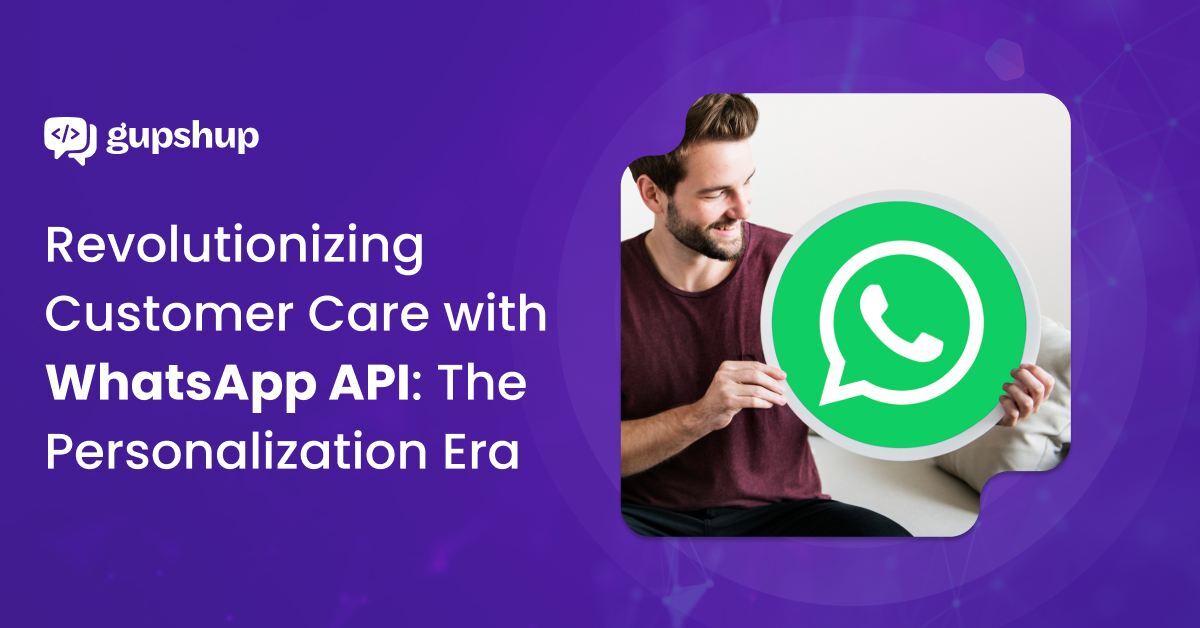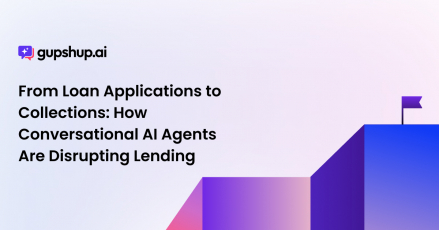Revolutionizing Customer Care with WhatsApp API: The Personalization Era

In today’s competitive environment, customer service often signifies more than just a routine interaction—it represents a critical point of engagement that can either escalate customer frustrations or significantly elevate their satisfaction. The shift towards proactive customer experiences has turned routine interactions into opportunities for businesses to demonstrate care and concern, not just solve problems. This is where personalization plays a transformative role. By harnessing data from previous interactions, businesses can offer not just solutions, but customized experiences that resonate on a personal level with consumers. Personalizing the customer journey not only addresses immediate needs but also delights customers through tailored experiences. Leveraging tools like the WhatsApp Business API for the retail industry enables businesses to anticipate and fulfill customer expectations with precision and a personal touch. The integration of the WhatsApp API into customer care strategies represents a monumental shift towards more dynamic, tailored, and responsive customer service frameworks.
64% of marketers regard customer experience as a crucial aspect of personalization.
Why Personalization Matters?
Making Customers Feel Valued
According to studies, 52% of consumers expect all communications from brands to be personalized. They want to be recognized and remembered. When customers approach for support, they anticipate that the business is already informed about their preferences and past interactions. It’s understandable—receiving attention as a unique individual rather than just another case number is undeniably more satisfying. This level of personalized care not only satisfies customers but also encourages repeat business. If businesses fail to make customers feel special, they risk losing them to competitors who will.
Tailoring Solutions with WhatsApp Business API
According to a McKinsey study about 76% of consumers get frustrated by businesses not offering personalized experiences.
Personalized solutions can significantly improve the customer care experience by utilizing data that customers have willingly shared. This includes actions such as issuing refunds, recalling previous conversations, and making an effort to comprehend the customer’s requirements, which can frequently be managed by WhatsApp chatbots. These AI-driven assistants, powered by the WhatsApp Business API, have instant access to comprehensive customer data, enabling them to deliver tailored responses suitable for every scenario.
When and How to Personalize Customer Interactions?
Customer loyalty can be significantly impacted by personalization—or the lack of it. As per Statista, about 62% of consumers will reconsider their loyalty if they perceive a brand’s communication as impersonal. Personalization must be accurate and timely, especially when addressing customer issues. Mistakes in personal details can exacerbate frustrations, so it’s crucial to get personalization right the first time. Moreover, acknowledging errors and personalizing the solution can help salvage a potentially negative situation.
Best Practices for Personalized Messaging
In today’s retail environment, the ability to craft personalized messages that resonate with individual consumers is more than just a marketing tactic; it’s a strategic imperative. This introduction delves into the core practices that define successful personalized messaging in retail. From providing genuine value that directly addresses customer problems to designing compelling and tailored calls to action (CTAs), the approach covers a spectrum of strategies aimed at enhancing customer engagement and loyalty. Whether it’s leveraging customer data to refine messaging, timing communication to coincide with critical moments like post-purchase, or ensuring compliance with opt-in regulations, each aspect plays a vital role in fostering a personalized experience that not only meets but anticipates customer needs. This strategic focus on personalization not only drives conversions but also builds a foundation for sustained customer relationships.
Each conversation below is designed to showcase the best practices in personalized interactions that address the customer’s specific needs and interests, enhancing engagement and satisfaction.

Providing Genuine Value
Personalization is ineffective if it does not resolve the customer’s problem. Effective personalized messaging should provide solutions that are both relevant and valuable, ensuring customer satisfaction and loyalty. For example, a WhatsApp bot can use purchase history and customer preferences to suggest products or troubleshoot issues, thereby enhancing the relevance and impact of each interaction.
Crafting Effective Personalized CTAs
Since every conversation is an opportunity for marketers, it is evident that each customer interaction should have a clear purpose and outcome. Incorporating personalized calls to action (CTAs) can make these interactions more productive. Research, like that conducted by HubSpot, indicates that personalized CTAs perform 202% better than generic ones. This underscores the effectiveness of tailored messaging in increasing customer engagement and driving conversions.
Setting the Right Tone and Timing
Communicating with customers in real-time, especially immediately post-purchase, is vital. According to a McKinsey study 71% of customers expect real-time communication from the companies. The right tone and timely communication can significantly enhance the customer experience. It’s about striking the perfect balance between professionalism and familiarity, ensuring customers feel at ease and valued. For instance, sending a personalized thank-you message immediately after a purchase or a reminder just before a warranty expires can significantly boost customer perception of your brand.
Importance of Opt-Ins
Proactive customer communication requires compliance with regulations, which include obtaining explicit opt-ins for promotional messages. These opt-ins not only ensure legal compliance but also signify a customer’s genuine interest in your brand, making personalized interactions more impactful.
The Future of Personalization
As per Forrester With almost 90% of online businesses investing in personalization strategies, the trend is clear—personalization is becoming integral to B2C interactions. Despite the potential risks of missteps, the benefits of successfully implementing personalized customer care are substantial. Through platforms like the WhatsApp Business API, retailers can offer seamless and individualized customer service that resolves issues and builds lasting relationships.
Are you ready to transform your retail business with advanced personalization? Gupshup’s comprehensive solutions for the WhatsApp API enable businesses to leverage powerful tools like buying WhatsApp Business API credits and deploying effective WhatsApp bots for enhanced customer interaction. With our expertise, you can personalize your customer service, increase satisfaction, and foster loyalty, setting your brand apart in the bustling retail market. If your business is among the 10% that hasn’t yet embraced personalization, now is the perfect time to begin.
Discover how Gupshup can help you revolutionize your customer care today and step into the future of personalized retail with confidence and innovation.
Here are some resources to help you learn more about using WhatsApp for customer support:




